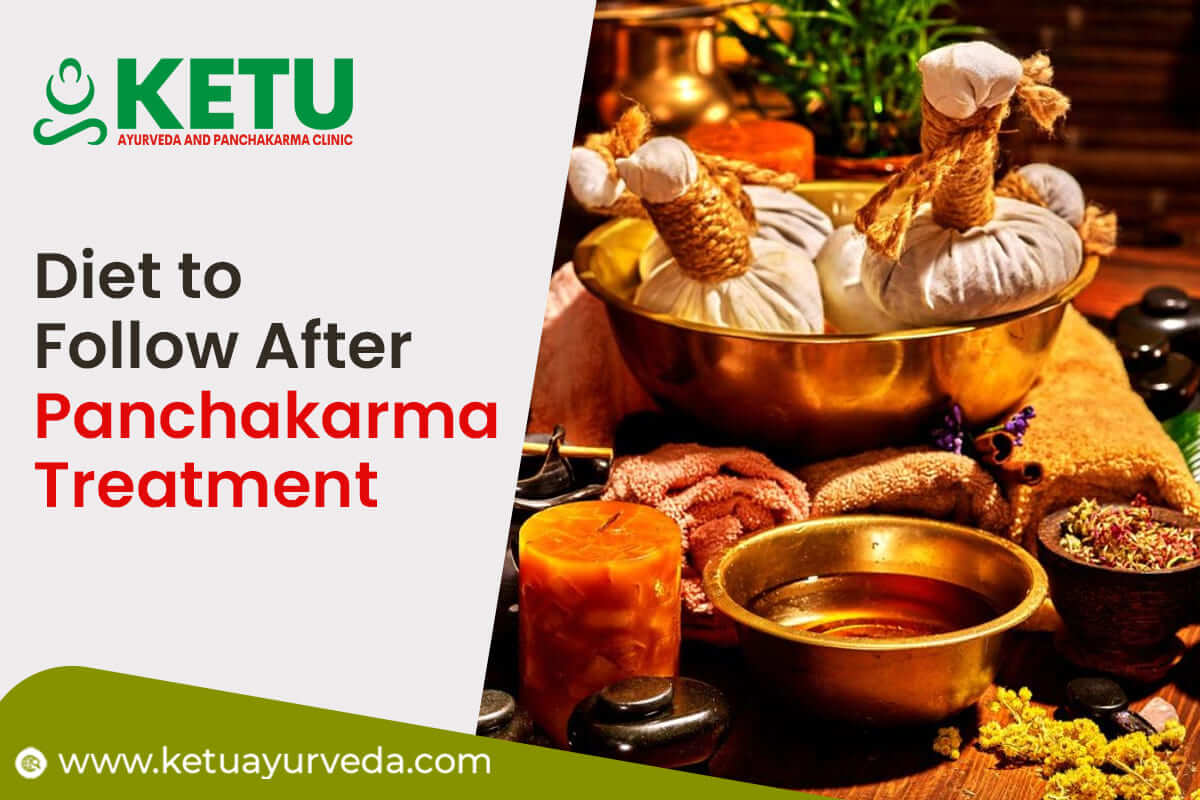Undergoing Ayurvedic detoxification, Panchakarma is a life-transforming experience. Through Ayurvedic principles, this therapy preserves the wellness of the body and restores its natural healing mechanism. After the treatment, it’s crucial to slowly get back to routine life. This is because the body undergoes significant rejuvenation, and sudden exertion and pressure undermine healing. The diet to follow after Panchakarma treatment is a holistic approach that strives to allow the body to adjust and recover optimally.
What is the Diet After Panchakarma Treatment?
After Panchakarma treatment at Ketu Panchakarma and Ayurvedic Clinic, the digestive system becomes delicate. Our MD Ayurvedic doctor in Rajkot recommends a light diet that is part of a carefully planned, gradual transition back to your regular diet.
Diet to Follow After Panchakarma Treatment
Stage 1: Delicate Phase
Immediately after Panchakarma treatment, your body is in a delicate phase. It’s crucial to be cautious and start with easily digestible food like soups, boiled veggies, or light grains such as rice or rajgira. Avoid processed oily food to ensure a smooth recovery.
Stage 2: Reintroducing Normal Food
Once your body has adjusted, start reintroducing your regular food into your diet. Pay attention to how your body responds. Include nutrient-rich food like whole grains, legumes, and lean proteins. These foods play a crucial role in your recovery, so consume them in light, easily digestible meals, avoiding oily and spicy foods.
Stage 3: Balanced Diet
Once your digestion is well-adjusted, focus on a balanced diet that suits your Ayurvedic constitution. Your Ayurvedic constitution, or ‘Prakriti, ‘is a unique combination of three doshas (Vata, Pitta, and Kapha) that determines your physical, mental, and emotional characteristics. Eat food that pacifies the dominant doshas while balancing your taste buds.
Foods to Eat After Panchakarma Treatment
- Fresh fruits and vegetables that are rich in minerals and antioxidants promote overall wellness and health.
- Whole grains such as rajgira, rice barley, and oats promote the digestive system.
- Healthy fats such as ghee, avocados, and olive oil in moderation promote brain function and hormonal balance.
- Leans proteins such as tofu, legumes, and other sources of proteins to promote supple repair and growth.
- Ayurvedic herbs can improve flavour and impart therapeutic effects to your meals with spices such as ginger, cumin, turmeric, etc.
Foods to Avoid After Panchakarma Treatment
- Reduce intake of processed, packed, canned, and refined food that can impact digestion.
- Avoid oily, greasy, and deep-fried food, as these can cause digestive inflammation and hinder the body’s healing process. Limit the consumption of sugary products such as snacks, desserts, and caffeinated beverages, which can impact blood sugar levels.
- Limit intake of raw and colds that can disrupt the digestive system; instead, have freshly cooked warm food.
Practice mindful eating; chew your food thoroughly and slowly. Also, avoid overeating and follow a ritual of gratitude for the meals that you have. Ketu Ayurveda and Panchakarma Clinic is the best Ayurvedic hospital Rajkot, dedicated to prioritizing the well-being of patients through ancient Ayurvedic therapies. Panchakarma rejuvenates the body, mind, and spirit, offering optimal health and wellness. To book a consultation, call us today.
Also Read:- Why Choose Ayurveda for Wellness?

